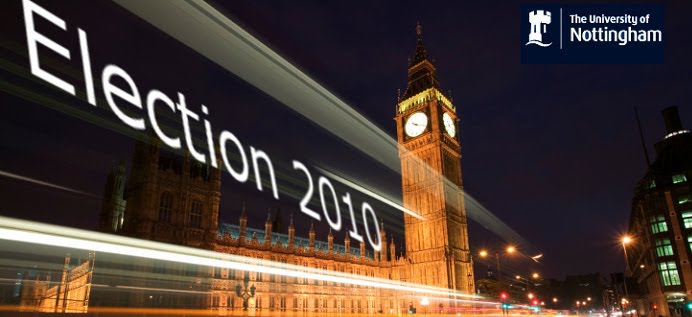"...this may backfire by pushing at least some voters to the BNP and other small parties, as well as contributing to large-scale public resentment..."
In last night’s debate, the first question put to the three main party leaders was about immigration. Based on the responses, the differences between the parties on this issue are likely to be perceived as relatively marginal.
All three argued for controls on migration. Gordon Brown emphasised the recent controls that his government put in place based on a points system and pointed out that net migration had already been declining in the past couple of years. David Cameron claimed that immigration was still too high and needed to be reduced further and that his party would introduce an immigration cap, as well as reforming the border policing system. Thus, while his approach is more restrictive than Brown’s (Brown is opposed to an arbitrary cap), there is also no (or little) attempt to appeal to potential far-right voters in any of what he said.
Perhaps ironically, Nick Clegg’s policy – to allow migrants only to go to regions that need them economically – is an approach with the potential to be the most restrictive. Spain’s 1985 Foreigners’ Law, which introduced similar additional regional/provincial bureaucratic processes for legal entry into Spain to work, has been claimed to encourage illegal migration because the legal procedures were so onerous. It also potentially resembles old guest-worker policies in places like Germany, where labour migrants were tied to a particular job and were not allowed to work for other employers once they had been granted entry into Germany.
Despite this early discussion of immigration in the debate last night, it is clear that, as predicted, none of the three wished to make immigration a key issue. It was not mentioned in any of their opening or closing statements. Rather than ‘playing the immigration card’, Cameron in particular (but the other two leaders as well) focused on the technical details of immigration policy, with none arguing for an immediate halt to migration.
Yet immigration was the second most important issue after the economy mentioned by British citizens in the March Ipsos Mori poll. As argued previously, ignoring the issue like this may backfire by pushing at least some voters to the BNP and other small parties, as well as contributing to large-scale public resentment at a political class that seems unwilling to address one of the issues that has been of major concern to the British public in the past decade.
Dr Lauren McLaren





Not arguing for an immediate halt to migration is not the same as (literally) ignoring or not talking about immigration. And surely "playing the immigration card", in an attempt to appeal to potential far-right voters, would prove to everyone else that they are still the "nasty party" they were perceived to be in 1997, 2001 and 2005?
ReplyDeleteImmigration is a subject that none of the main parties dare discuss honestly. They have a problem in starting any discussion because they seem to think that everything they say must be backed up by statistical analysis and nobody has any idea of the real numbers when it comes to illegal immigrants (500,000 or 1,000,000?)and EU immigrants. Ask any local community, such as Boston in Lincolnshire, where central government state numbers up to 20% lower than the local council claims. Then talk to local people in the country about the number of unskilled people coming into the country with poor command of the English language. Talk to people about immigrants who cannot afford to rent or buy a house and extend the local social housing waiting lists by several times. Immigration is completely out of control and none of the main parties dare talk about the almost complete moratorium that most voters demand. There is such a mistrust of politicians that people do not believe them and weigh their beliefs on what they see around themselves. Then you have created exactly the climate for parties like the BNP to move in. I live in Lincolnshire, a significantly underfunded region. With a combination of our deficit and the need to effectively build 6 more Birminghams in the next 9 years I see Lincolnshire and the whole country suffering severely, and yet they still won't listen!
ReplyDelete